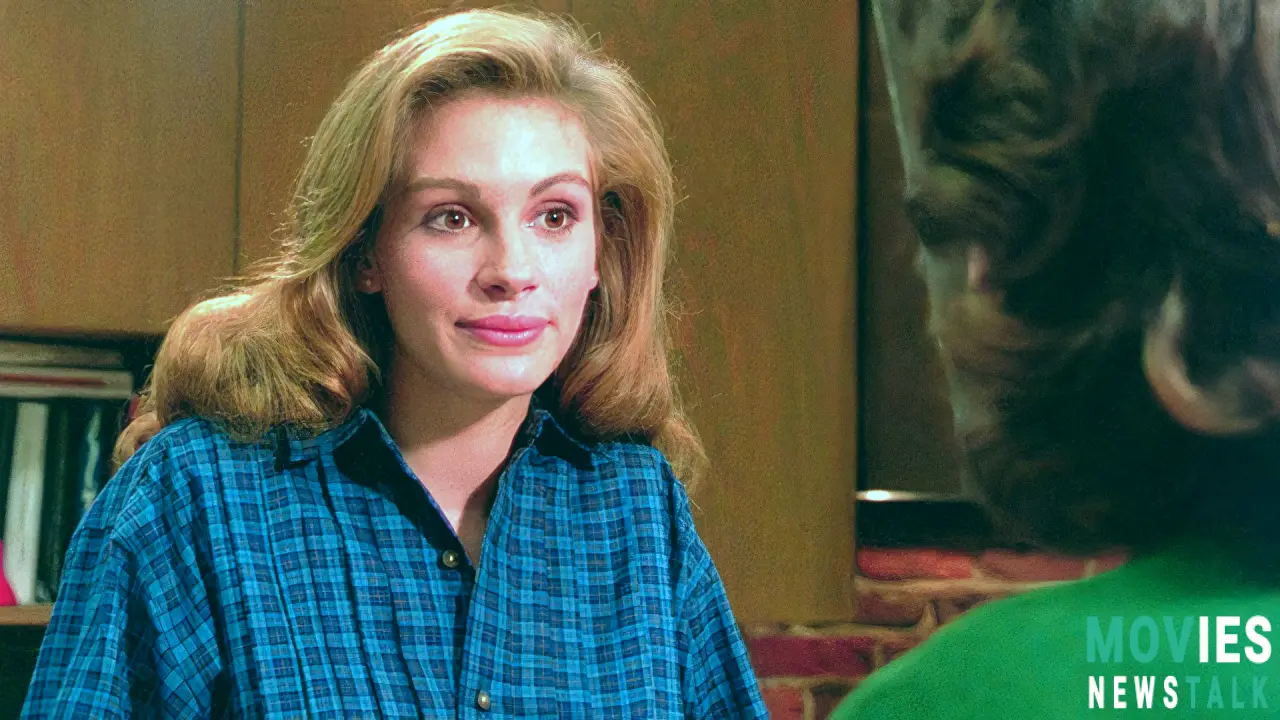Julia Roberts's Steel Magnolias : A Story of Talent, Triumph, and Mistreatment
Shirley MacLaine's Shocking Revelation: Julia Roberts and Herbert Ross's Tense Encounter
The 1989 film Steel Magnolias, starring Julia Roberts, is a classic—but a new memoir by Shirley MacLaine (The Wall of Life) reveals some seriously troubling behind-the-scenes drama. MacLaine, Roberts's co-star, alleges that director Herbert Ross was unbelievably harsh and unfair to the young Roberts, suggesting he felt threatened by her beauty and talent. MacLaine describes how the rest of the cast rallied to defend Roberts from the mistreatment, and ultimately demanded Ross to change his behavior. In MacLaine’s own words (via Variety):
"He did not treat her well, and he was so unfair to her. Everyone else could see how talented and beautiful she was, so we didn’t take it too well. She seemed to threaten Herb Ross’ sense of power. We told him to knock it off and to leave her alone."
This isn’t the first time we’ve heard of this behavior, as other Steel Magnolias cast members reported similar behavior. Sally Field described a similar encounter; describing Ross as a “real son of a bitch” in a separate interview and confirming Ross's harsh treatment of the rising star: "If you ever talk to Julia, she’ll tell you.” Field continues, explaining the cast’s reactions towards Roberts’s treatment: "We would all rally around Julia, because she was the baby. She was sort of the newcomer. And she was wonderful, and he just picked on her. It was awful."
Power Imbalances and Hollywood's Dark Side: How Steel Magnolias Highlights Important Issues
MacLaine's and Field's accounts highlight the power dynamics on film sets and how they frequently produce problematic consequences, in this very unique context. The established position of director and newer actor's position generates significant consequences in how each individual interacts. While Ross had a distinguished career (directing movies like The Turning Point and Footloose), this was one of Roberts's first major roles, setting the stage for the incredible future which helped catapult Roberts to global fame. This highlights exactly why this moment of creative expression might also come at the expense of how actors may potentially treat those they are working alongside; this creates intense power imbalances which need better handling.
Steel Magnolias: A Box Office Triumph and a Testament to Julia Roberts’s Talent
Released November 15, 1989, Steel Magnolias was an enormous success. With a budget of $15 million, it grossed over $96.8 million worldwide; an additional $40 million was later earned from VHS and DVD releases. It has 73% on Rotten Tomatoes (critics) and 89% from the audience – suggesting its enormous audience appreciation, especially across different demographics! The ensemble cast (Sally Field, Dolly Parton, Daryl Hannah, Olympia Dukakis, Tom Skerritt, Dylan McDermott, Kevin J. O’Connor, and Sam Shepard) also largely contributed to its success; bringing different skills and creating unique character dynamics which largely created that incredible on-screen energy. Those acting performances were well-received and it still remains well-loved even after decades!
This also remains an important testament to Roberts's early career; showing just how immensely powerful and successful her early breakout roles helped make her the star that everyone currently knows. Even despite Ross's mistreatment; she managed to create her most memorable performance yet; achieving her first Oscar nomination. And Roberts earned another three nominations afterward: Pretty Woman, Erin Brockovich, and August: Osage County; creating a strong legacy that only proves that overcoming serious creative difficulties results in the possibility of delivering high quality artistic expressions that the viewers truly appreciate.
Conclusion: Recognizing the Importance of Professional Treatment on Film Sets
MacLaine's revealing comments in her memoir emphasize exactly why these stories need telling; and also provide insights about important yet generally unrecognized problems. While Steel Magnolias remains a critically lauded and beloved classic; the production difficulties surrounding those actors' treatment from those in charge of such productions cannot and should not be forgotten; it’s deeply important to remember those kinds of power imbalances and mistreatment should never be part of filmmaking processes; highlighting why changes across various sectors is both necessary and desirable.
Roberts’s success – all the recognition she later earned; this despite early hardships— shows that overcoming obstacles produces the kind of resilience and talent often missing from those creatives working in similar spaces; a very compelling success story. We should celebrate Roberts's achievement–and simultaneously highlight those systemic issues requiring correction on many production sets today! It serves as a much needed reminder to better approach creative processes moving forward.

